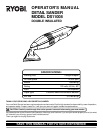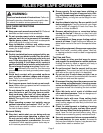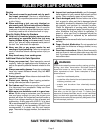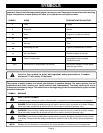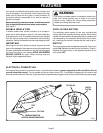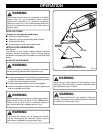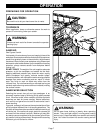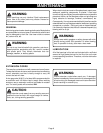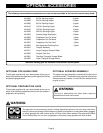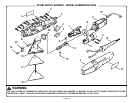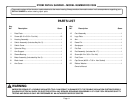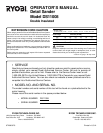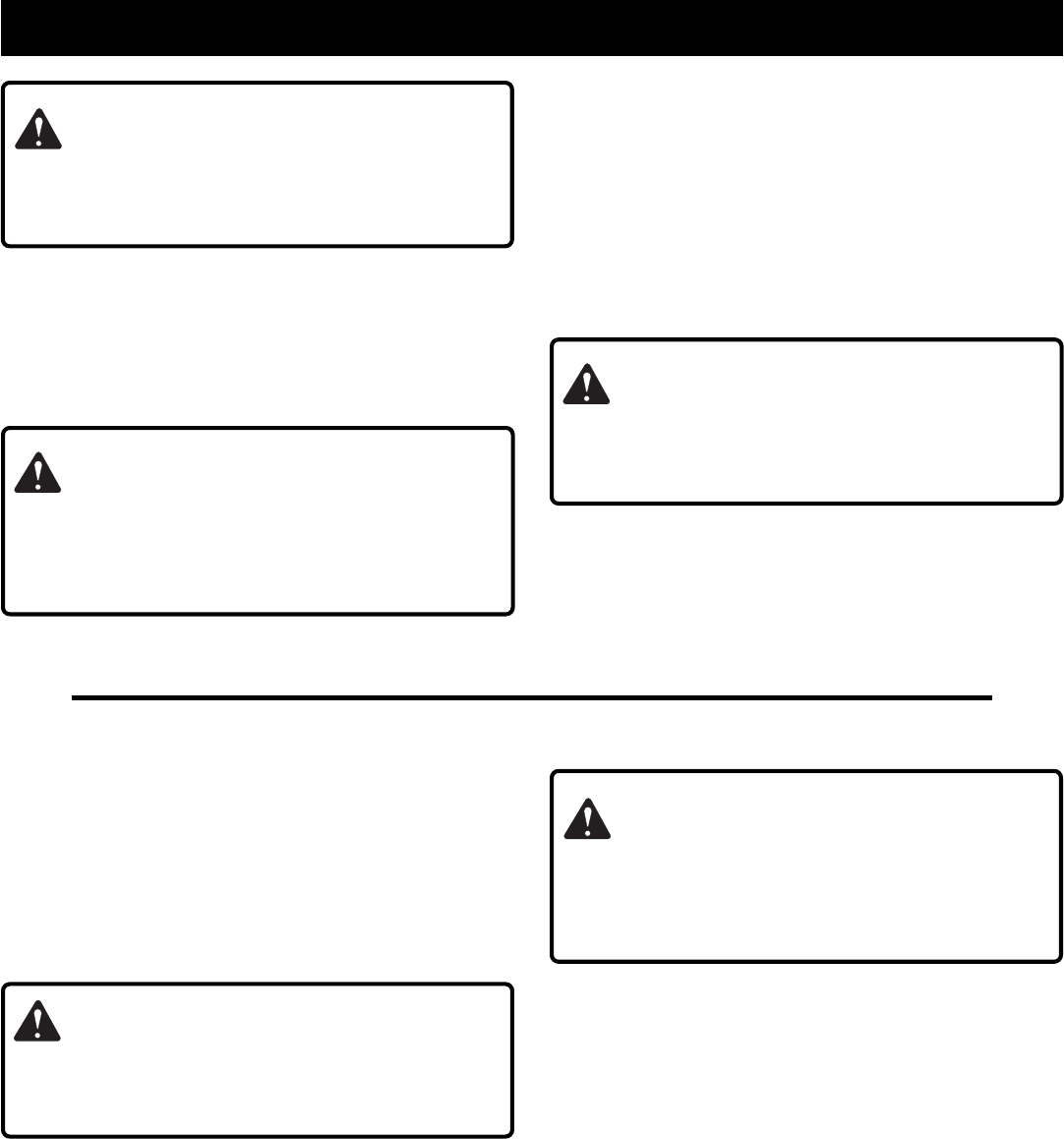
Page 8
MAINTENANCE
WARNING:
When servicing use only identical Ryobi replacement
parts. Use of any other parts may create a hazard or
cause product damage.
GENERAL
Avoid using solvents when cleaning plastic parts. Most plastics
are susceptible to various types of commercial solvents and
may be damaged by their use. Use clean cloths to remove
dirt, carbon dust, etc.
WARNING:
Do not at any time let brake fluids, gasoline, petroleum-
based products, penetrating oils, etc., come in contact
with plastic parts. They contain chemicals that can
damage, weaken, or destroy plastic.
When electric tools are used on fiberglass boats, sports cars,
wallboard, spackling compounds, or plaster, it has been
found that they are subject to accelerated wear and possible
premature failure, as the fiberglass chips and grindings are
highly abrasive to bearings, brushes, commutators, etc.
Consequently, it is not recommended that this tool be used for
extended work on any fiberglass material, wallboard, spackling
compounds, or plaster. During any use on these materials,
it is extremely important that the tool is cleaned frequently by
blowing with an air jet.
WARNING:
Always wear safety goggles or safety glasses with side
shields during power tool operation or when blowing
dust. If operation is dusty, also wear a dust mask.
LUBRICATION
All of the bearings in this tool are lubricated with a sufficient
amount of high grade lubricant for the life of the unit under
normal operating conditions. Therefore, no further lubrication
is required.
EXTENSION CORDS
The use of any extension cord will cause some loss of power.
To keep the loss to a minimum and to prevent tool overheating,
use an extension cord that is heavy enough to carry the
current the tool will draw.
A wire gage size (A.W.G.) of at least 16 is recommended for
an extension cord 100 feet or less in length. When working
outdoors, use an extension cord that is suitable for outdoor
use. The cord's jacket will be marked WA.
CAUTION:
Keep extension cords away from any sanding area and
position the cord so that it will not get caught on lumber,
tools, etc., during sanding operation.
WARNING:
Check extension cords before each use. If damaged
replace immediately. Never use tool with a damaged cord
since touching the damaged area could cause electrical
shock resulting in serious injury.



